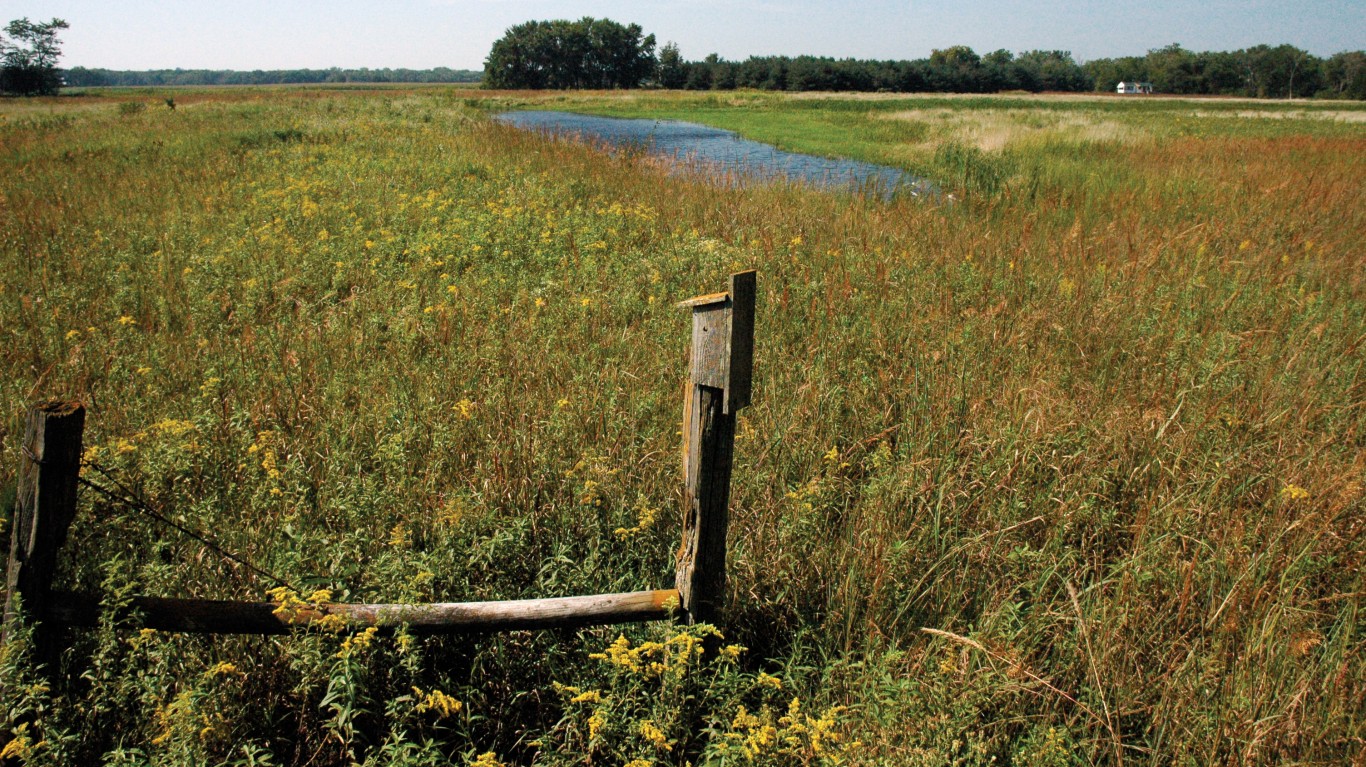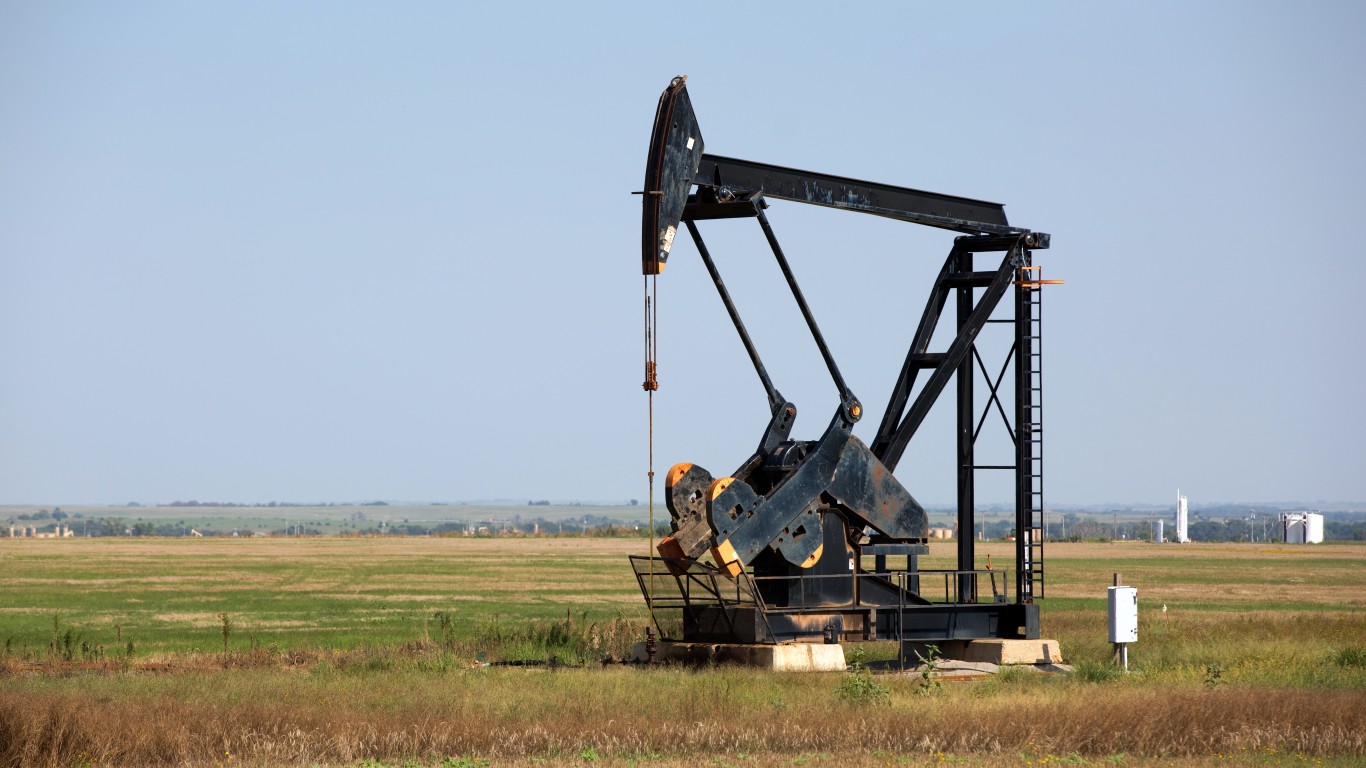
The oil industry faced unprecedented challenges in 2020. Due in large part to the COVID-19 pandemic, demand for oil dipped for the first time in over a decade, down by over 9 million barrels per day. With it, oil production also dropped by 6.6 million barrels per day.
Still, an average of more than 88 million barrels were produced worldwide each day in 2020. The vast majority of this production took place in just 15 countries. In addition to having the highest production output in 2020, these 15 countries have a combined 1.6 trillion barrels of oil in their reserves.
To determine the countries that control the world’s oil, 24/7 Wall St. reviewed data on oil reserves from oil and gas company BP’s “Statistical Review of World Energy 2021.” Countries were ranked based on proved reserves as of 2020.
The 15 countries with the most oil are spread across five different continents, though the majority are located in the Middle East and North Africa regions. The other countries tend to be very large, as the more land area a country has, the more likely some of it sits on top of a large deposit of oil.
Oil is one of the most valuable and widely used commodities in the world, and countries with large supplies tend to be very wealthy. The economies of several nations on this list are almost wholly powered by the oil industry, and they rank among the richest countries in the world.
Click here to see the 15 countries that control the world’s oil
Click here to read our detailed methodology
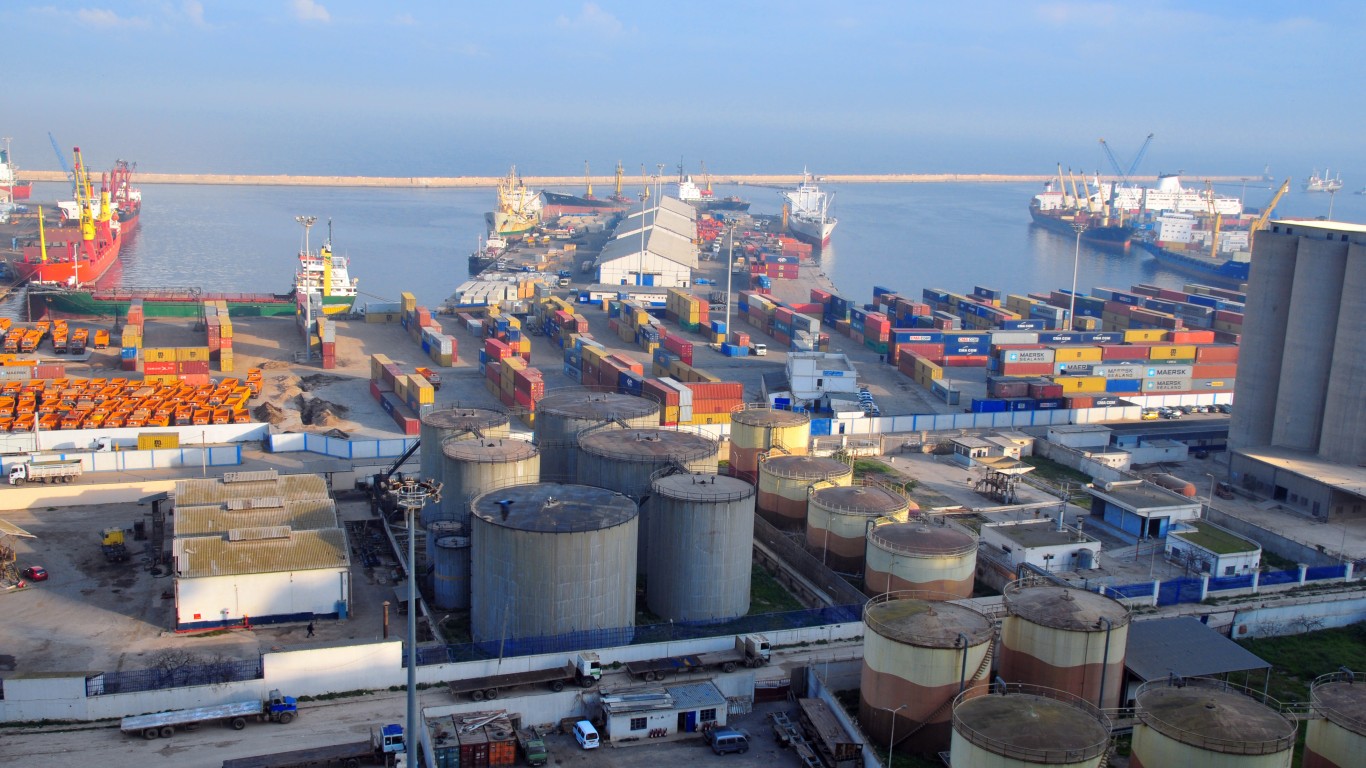
15. Algeria
> Proved oil reserves: 12.2 billion barrels
> Reserves as a share of world total: 0.7%
> 2020 oil production: 1.3 million barrels per day
> 2020 GDP per capita: $11,268
> 2020 oil exports as pct. of GDP: 14.4%
[in-text-ad]
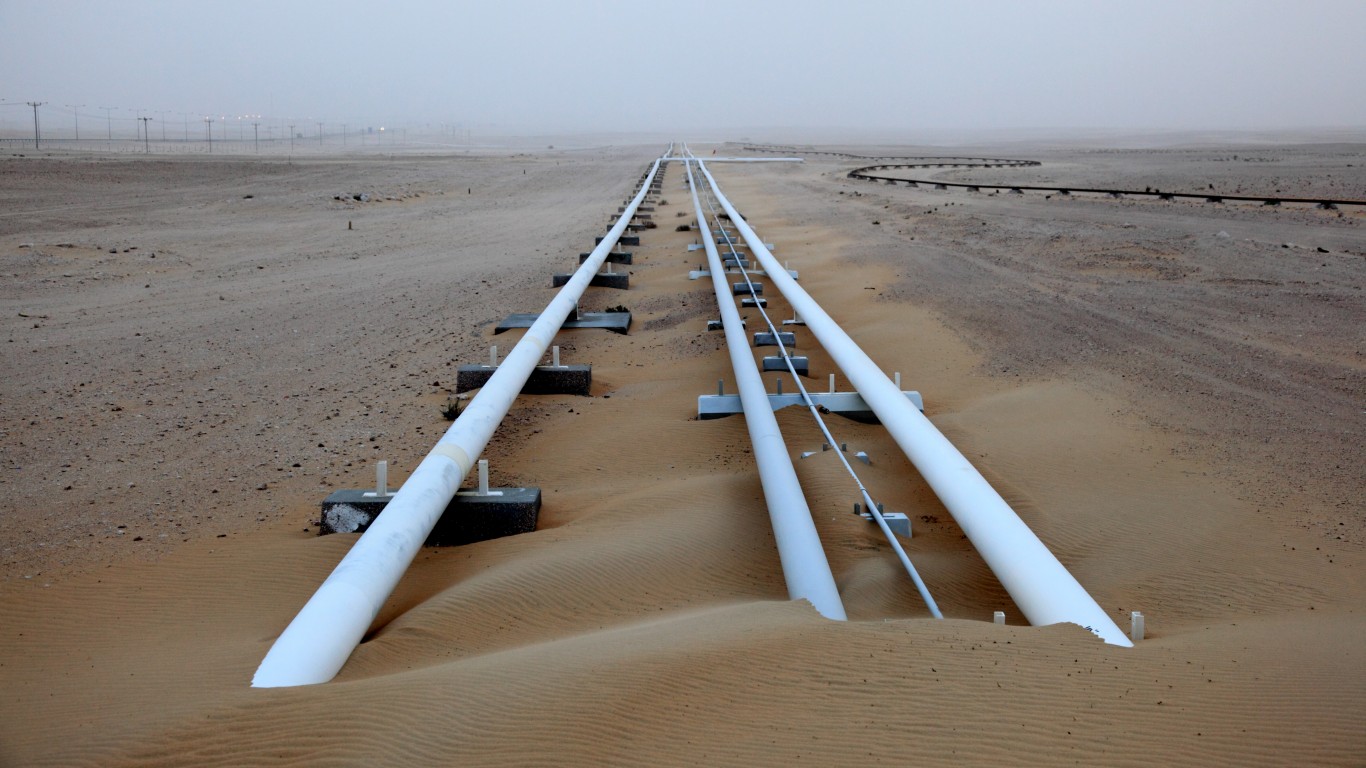
14. Qatar
> Proved oil reserves: 25.2 billion barrels
> Reserves as a share of world total: 1.5%
> 2020 oil production: 1.8 million barrels per day
> 2020 GDP per capita: $89,949
> 2020 oil exports as pct. of GDP: 16.9%
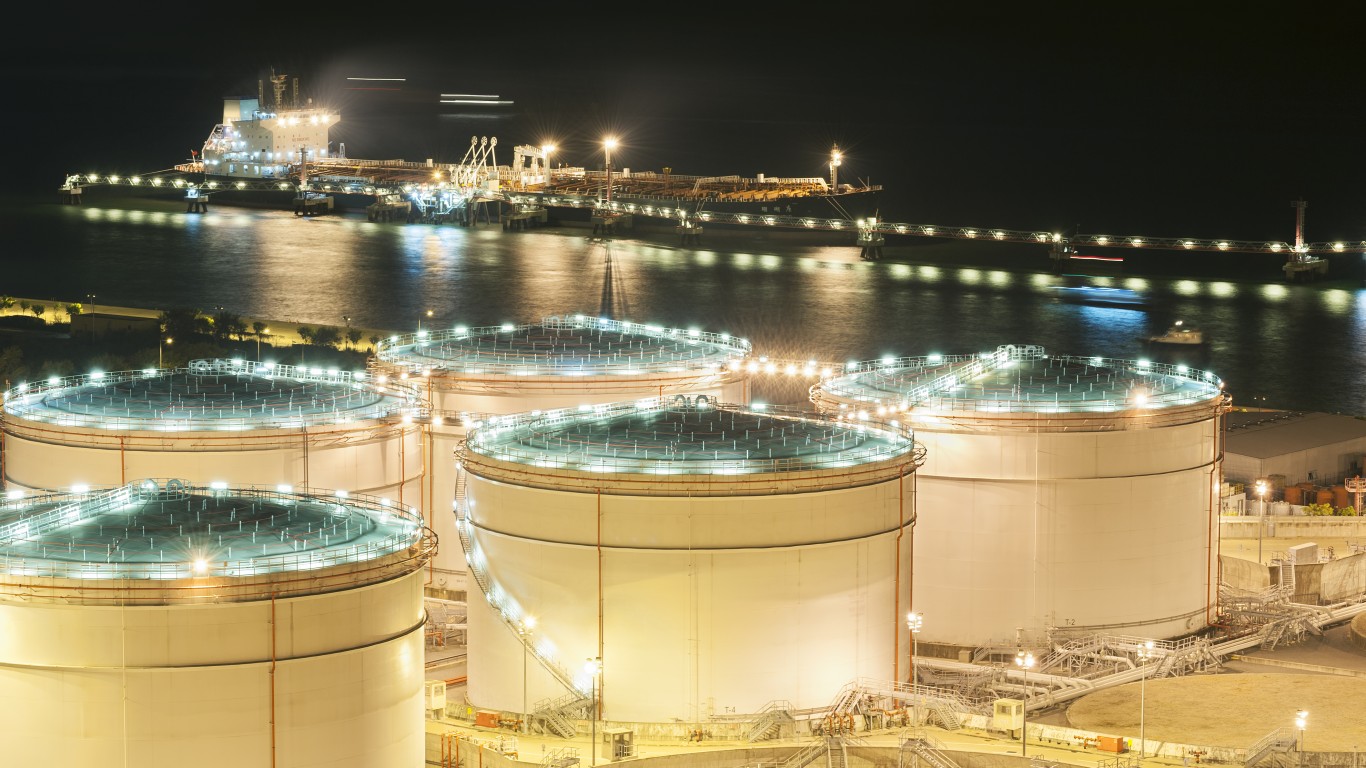
13. China
> Proved oil reserves: 26.0 billion barrels
> Reserves as a share of world total: 1.5%
> 2020 oil production: 3.9 million barrels per day
> 2020 GDP per capita: $17,312
> 2020 oil exports as pct. of GDP: 0.4%
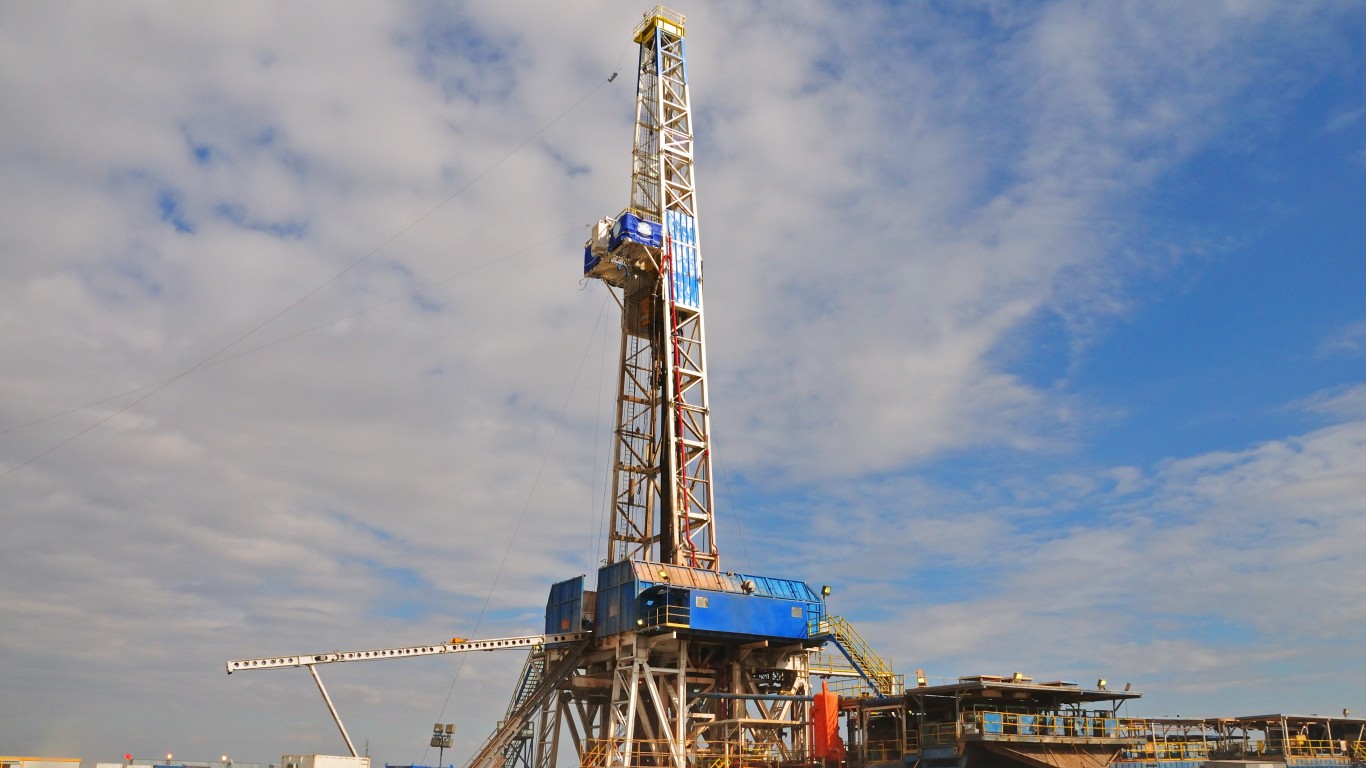
12. Kazakhstan
> Proved oil reserves: 30.0 billion barrels
> Reserves as a share of world total: 1.7%
> 2020 oil production: 1.8 million barrels per day
> 2020 GDP per capita: $26,729
> 2020 oil exports as pct. of GDP: 13.8%
[in-text-ad-2]
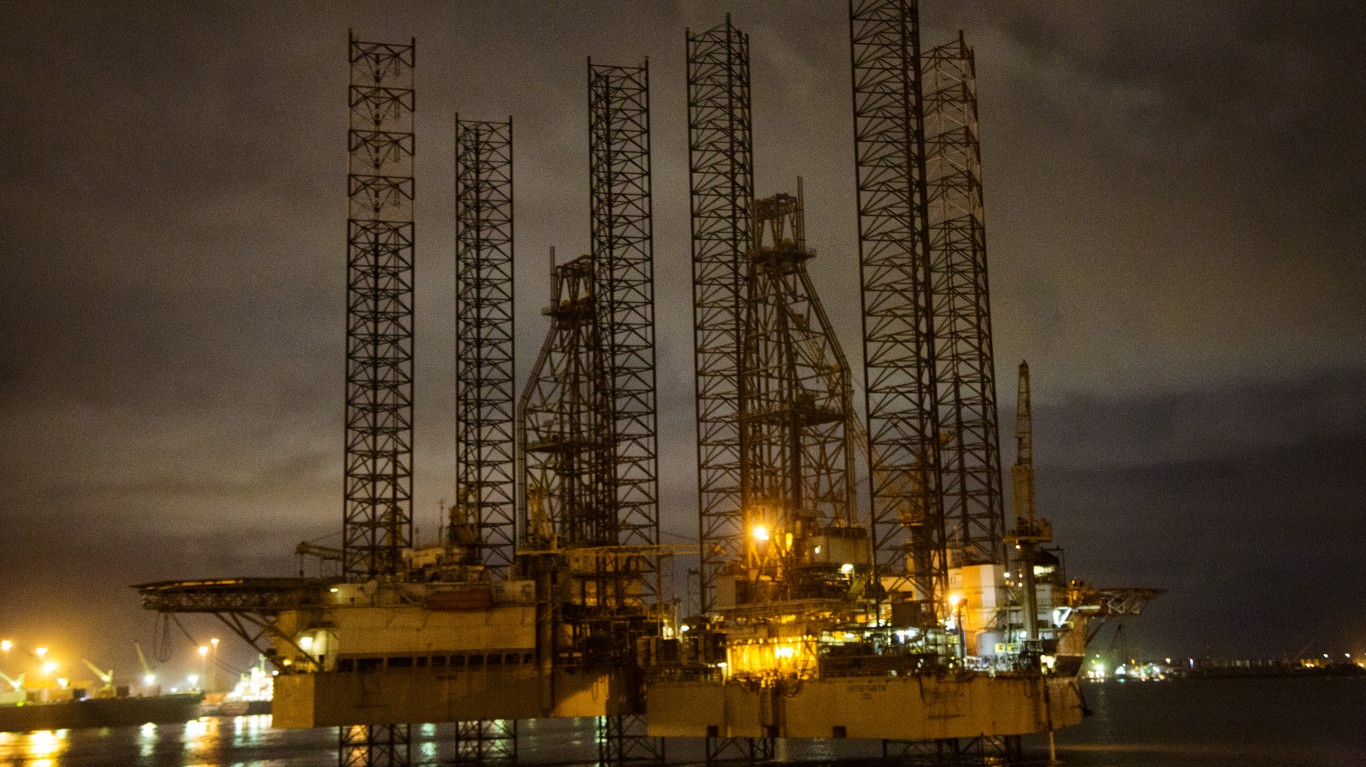
11. Nigeria
> Proved oil reserves: 36.9 billion barrels
> Reserves as a share of world total: 2.1%
> 2020 oil production: 1.8 million barrels per day
> 2020 GDP per capita: $5,187
> 2020 oil exports as pct. of GDP: 7.4%
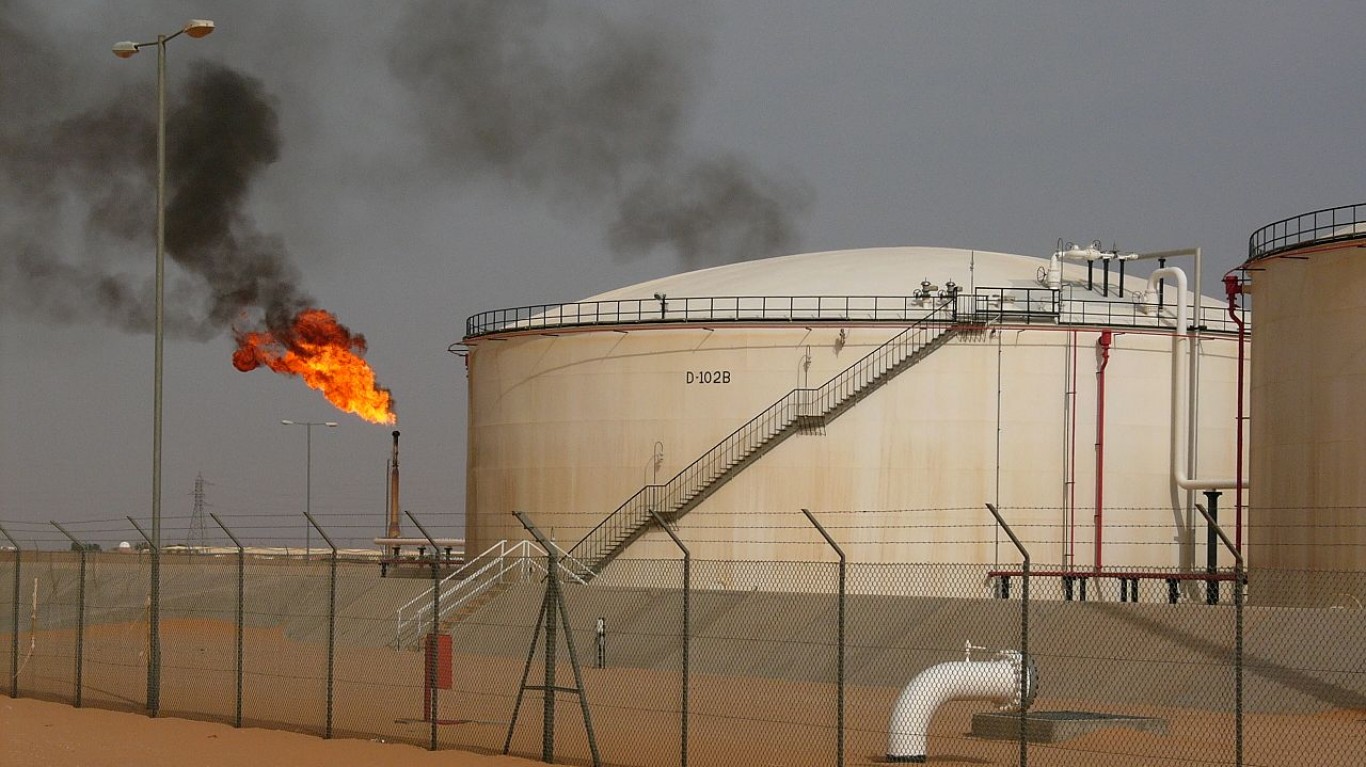
10. Libya
> Proved oil reserves: 48.4 billion barrels
> Reserves as a share of world total: 2.8%
> 2020 oil production: 389,596 barrels per day
> 2020 GDP per capita: $10,847
> 2020 oil exports as pct. of GDP: 43.9%
[in-text-ad]

9. United States
> Proved oil reserves: 68.8 billion barrels
> Reserves as a share of world total: 4.0%
> 2020 oil production: 16.5 million barrels per day
> 2020 GDP per capita: $63,544
> 2020 oil exports as pct. of GDP: 0.4%
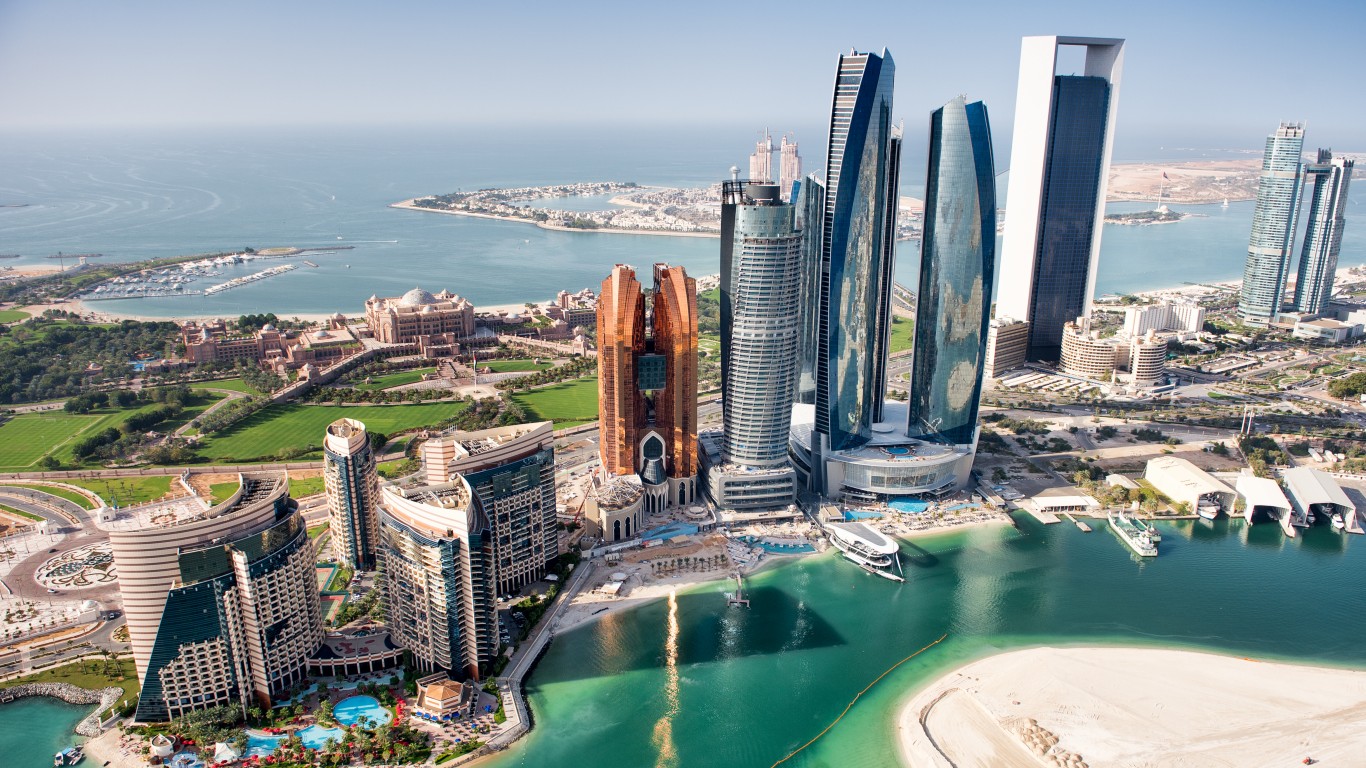
8. United Arab Emirates
> Proved oil reserves: 97.8 billion barrels
> Reserves as a share of world total: 5.6%
> 2020 oil production: 3.7 million barrels per day
> 2020 GDP per capita: $69,958
> 2020 oil exports as pct. of GDP: 16.2%
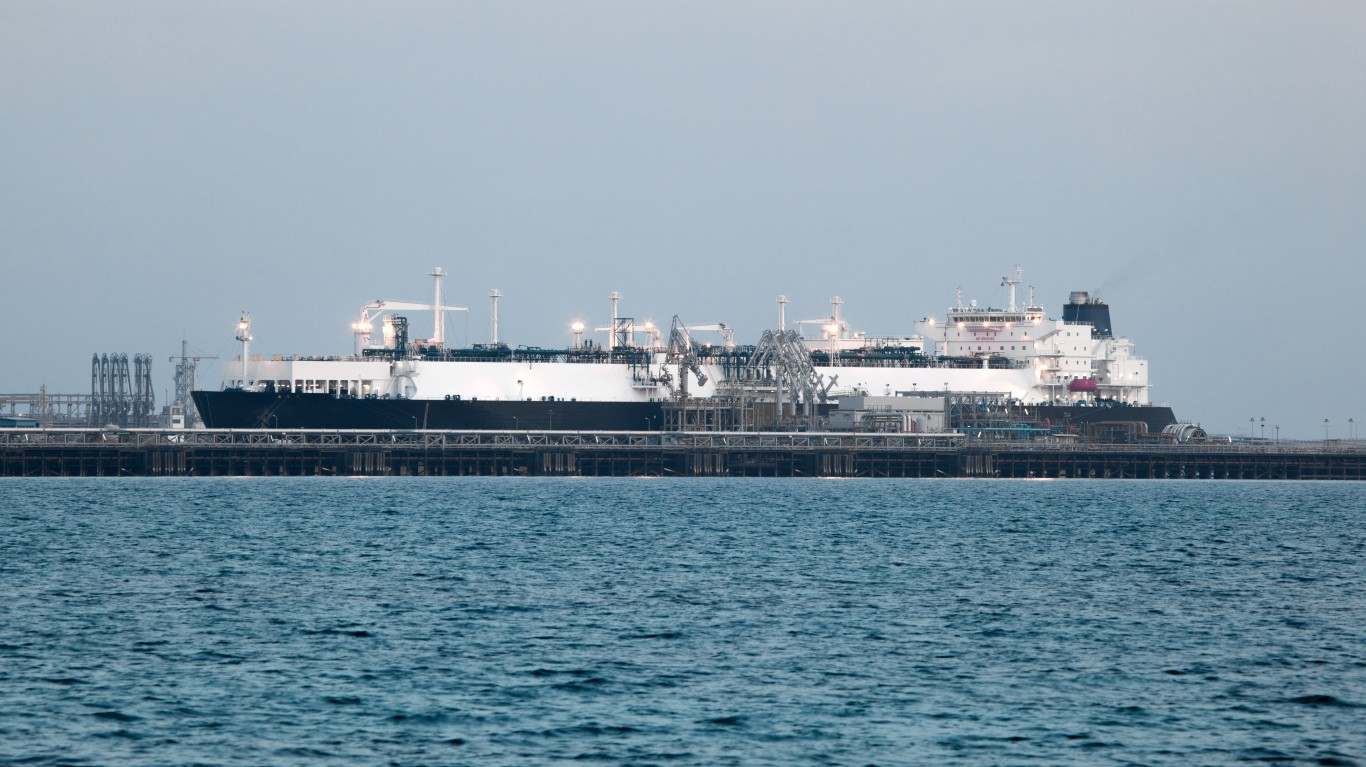
7. Kuwait
> Proved oil reserves: 101.5 billion barrels
> Reserves as a share of world total: 5.9%
> 2020 oil production: 2.7 million barrels per day
> 2020 GDP per capita: $51,962
> 2020 oil exports as pct. of GDP: 42.1%
[in-text-ad-2]
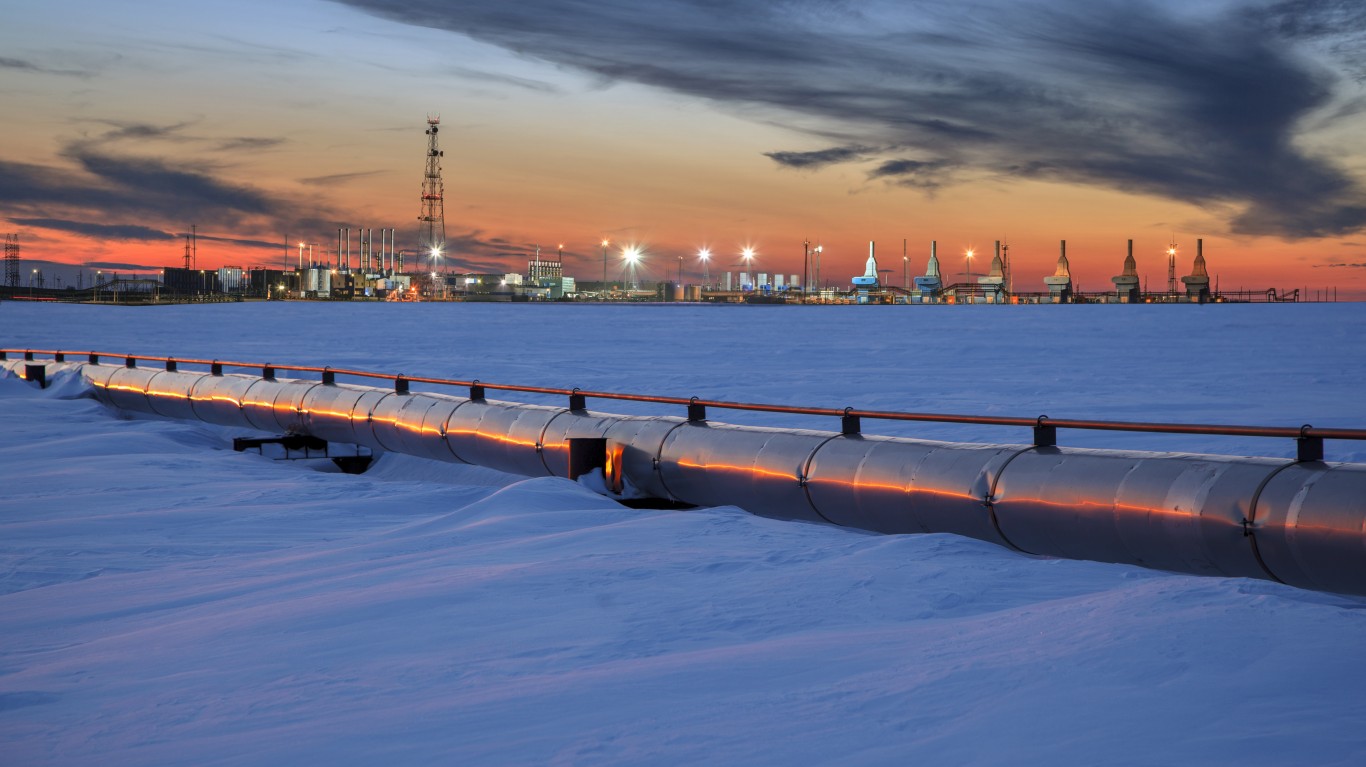
6. Russian Federation
> Proved oil reserves: 107.8 billion barrels
> Reserves as a share of world total: 6.2%
> 2020 oil production: 10.7 million barrels per day
> 2020 GDP per capita: $28,213
> 2020 oil exports as pct. of GDP: 9.2%
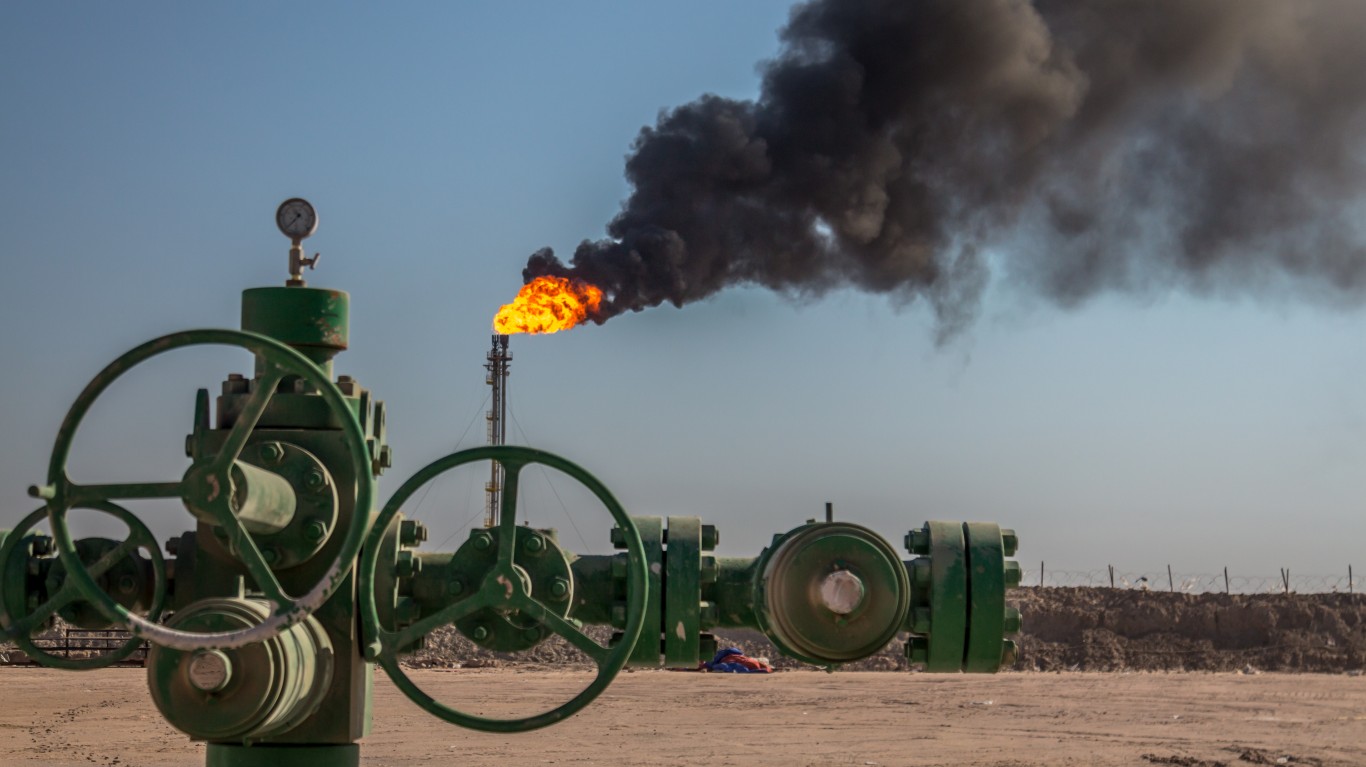
5. Iraq
> Proved oil reserves: 145.0 billion barrels
> Reserves as a share of world total: 8.4%
> 2020 oil production: 4.1 million barrels per day
> 2020 GDP per capita: $9,764
> 2020 oil exports as pct. of GDP: 39.6%
[in-text-ad]

4. Iran
> Proved oil reserves: 157.8 billion barrels
> Reserves as a share of world total: 9.1%
> 2020 oil production: 3.1 million barrels per day
> 2020 GDP per capita: $13,116
> 2020 oil exports as pct. of GDP: N/A
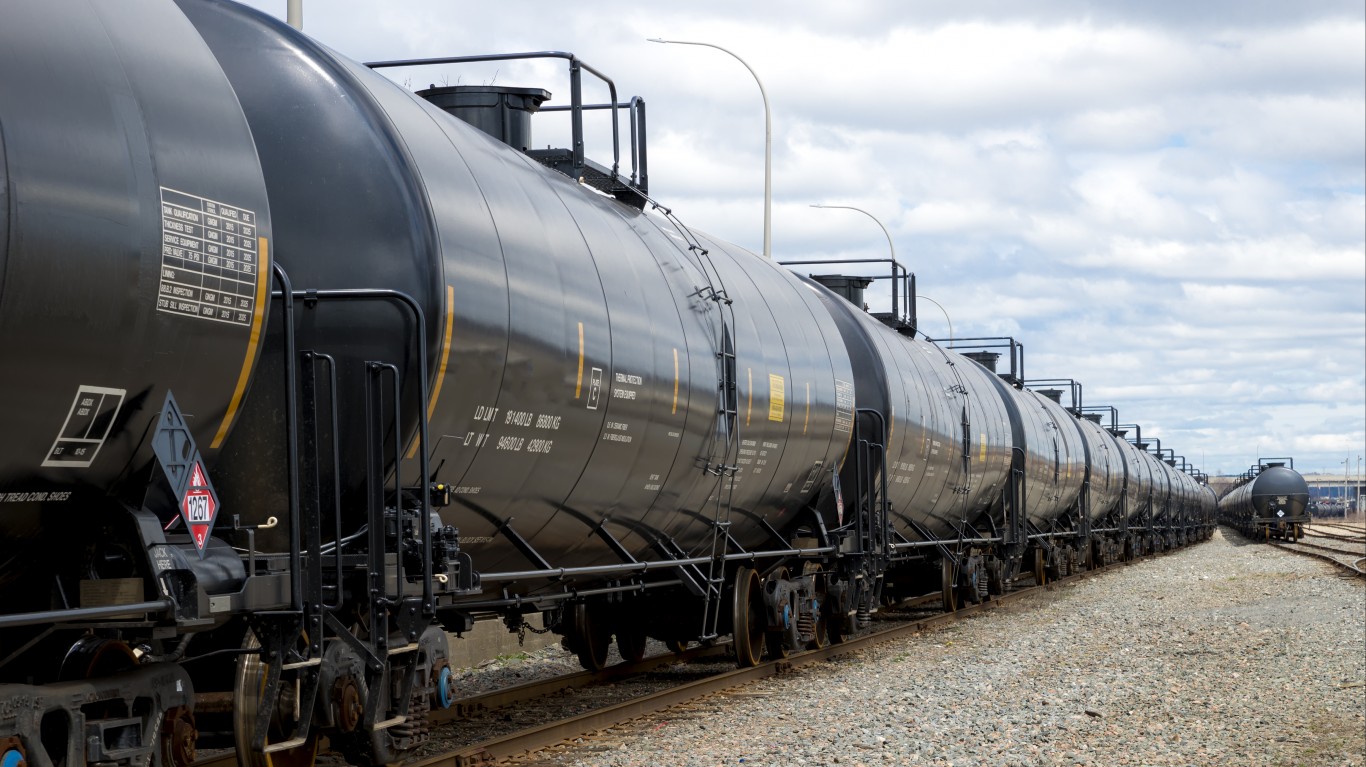
3. Canada
> Proved oil reserves: 168.1 billion barrels
> Reserves as a share of world total: 9.7%
> 2020 oil production: 5.1 million barrels per day
> 2020 GDP per capita: $48,073
> 2020 oil exports as pct. of GDP: 1.6%
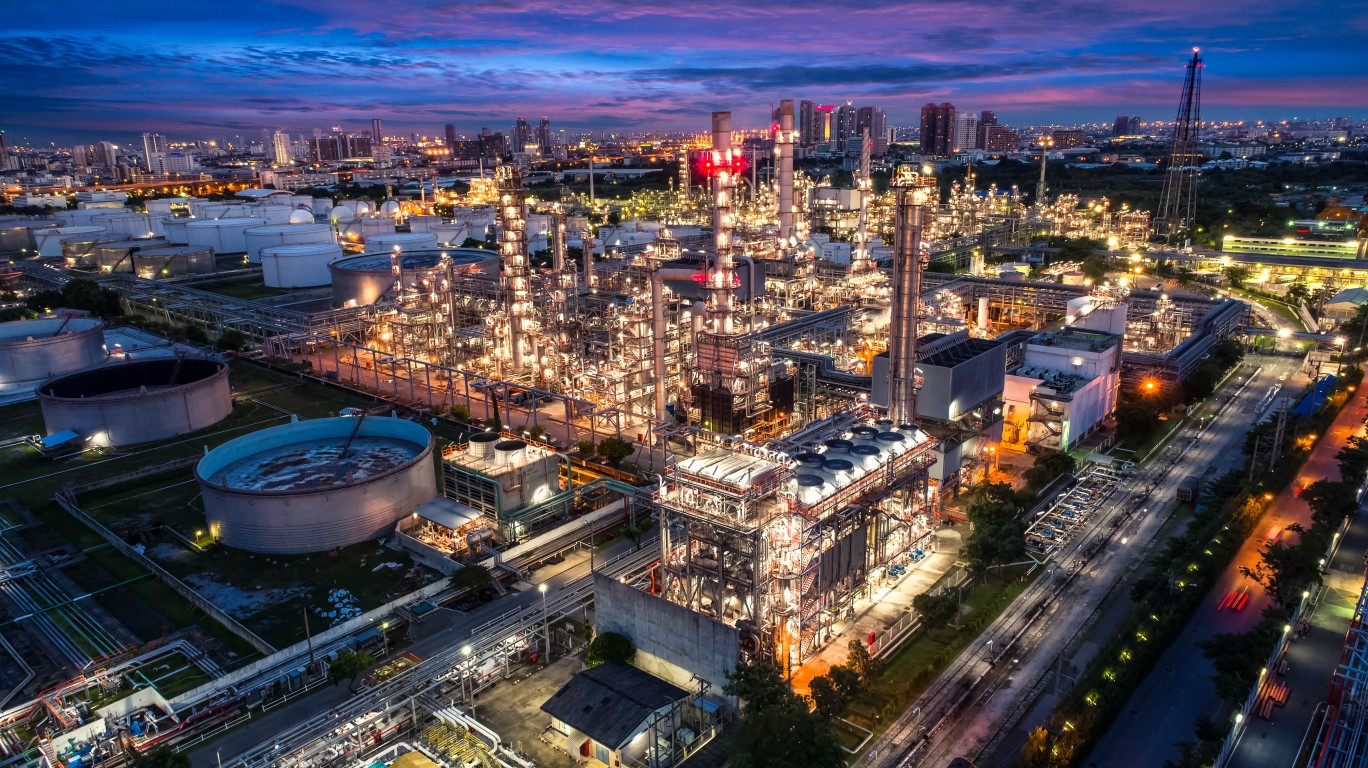
2. Saudi Arabia
> Proved oil reserves: 297.5 billion barrels
> Reserves as a share of world total: 17.2%
> 2020 oil production: 11.0 million barrels per day
> 2020 GDP per capita: $46,762
> 2020 oil exports as pct. of GDP: 24.2%
[in-text-ad-2]
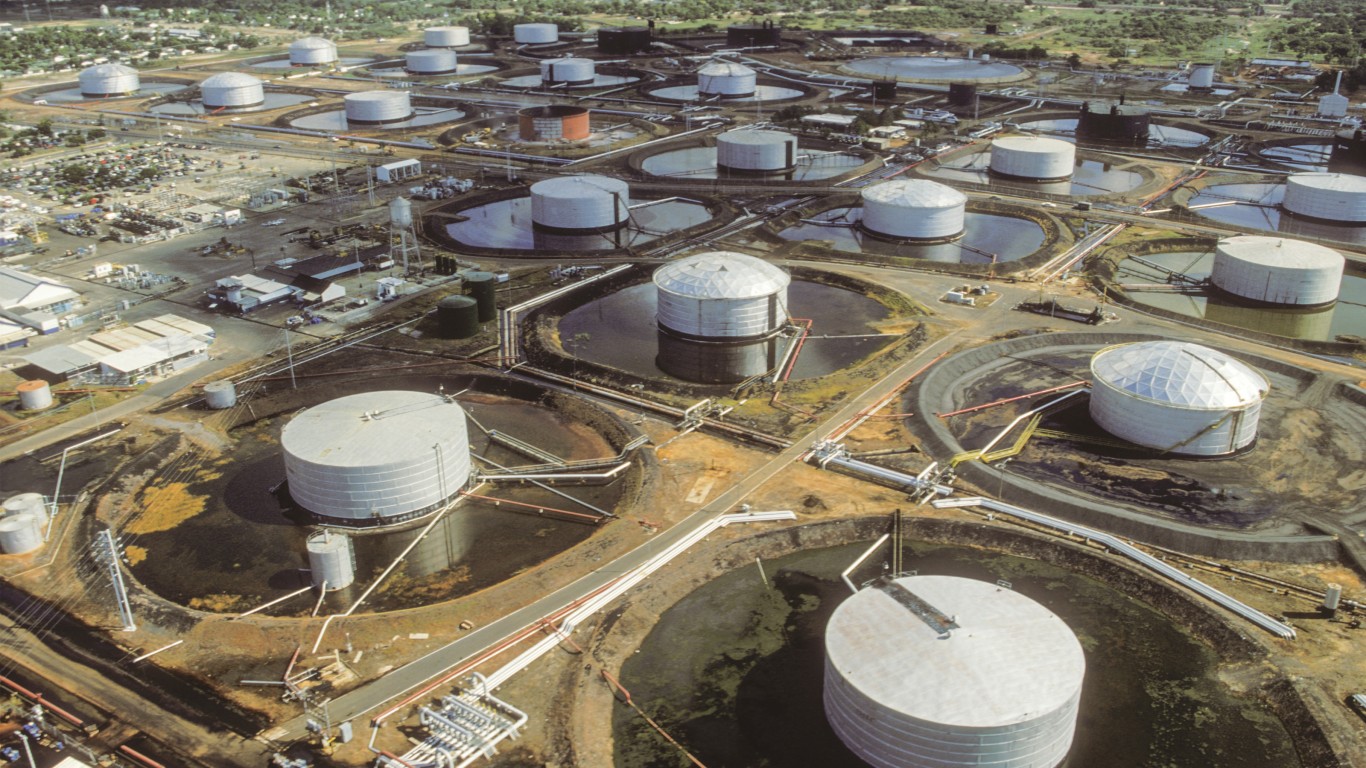
1. Venezuela
> Proved oil reserves: 303.8 billion barrels
> Reserves as a share of world total: 17.5%
> 2020 oil production: 539,761 million barrels per day
> 2020 GDP per capita: N/A
> 2020 oil exports as pct. of GDP: N/A
Methodology
To determine the countries that control the world’s oil, 24/7 Wall St. reviewed data on oil reserves from oil and gas company BP’s “Statistical Review of World Energy 2021.” Countries were ranked based on 2020 proven reserves — those quantities that geological and engineering information indicates with reasonable certainty can be recovered in the future from known reservoirs under existing economic and operating conditions. Data on GDP per capita in 2020 in current international dollars is based on purchasing power parity and is from the World Bank. Data on oil rents — the difference between the value of crude oil production at regional prices and total costs of production — as a percentage of GDP came from the World Bank and is for 2019.
100 Million Americans Are Missing This Crucial Retirement Tool
The thought of burdening your family with a financial disaster is most Americans’ nightmare. However, recent studies show that over 100 million Americans still don’t have proper life insurance in the event they pass away.
Life insurance can bring peace of mind – ensuring your loved ones are safeguarded against unforeseen expenses and debts. With premiums often lower than expected and a variety of plans tailored to different life stages and health conditions, securing a policy is more accessible than ever.
A quick, no-obligation quote can provide valuable insight into what’s available and what might best suit your family’s needs. Life insurance is a simple step you can take today to help secure peace of mind for your loved ones tomorrow.
Click here to learn how to get a quote in just a few minutes.
Thank you for reading! Have some feedback for us?
Contact the 24/7 Wall St. editorial team.
